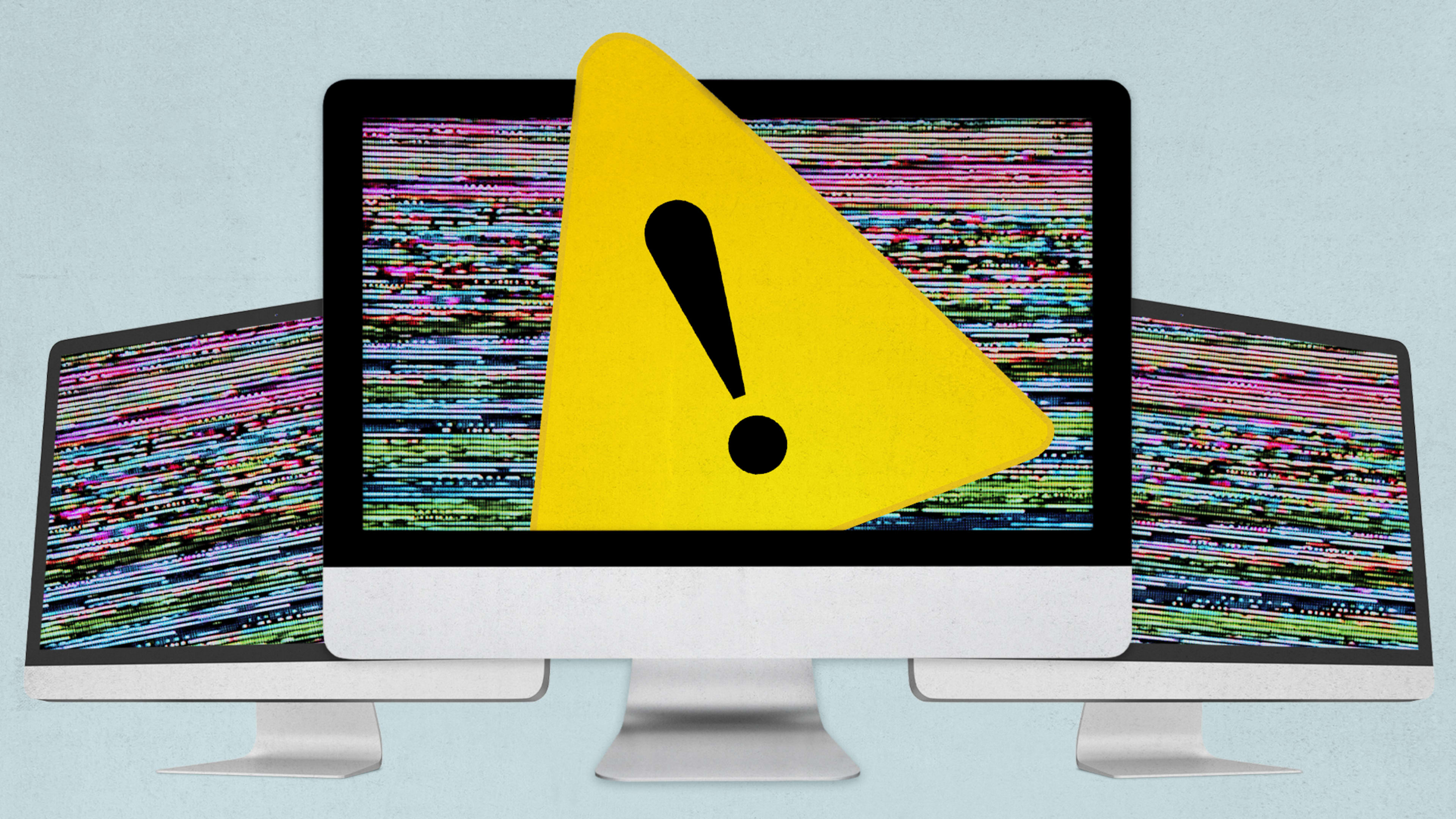A new report on the human-rights policies of 26 tech and telecom firms around the world delivers a harsh verdict: From Alibaba to Vodafone, they all get an F.
The 2020 Ranking Digital Rights Corporate Accountability Index, as previewed in advance of its Wednesday posting, blames this collective failure to get “even close to earning a passing grade” on widespread opacity among these firms in how they analyze, promote, and demote the speech of their customers for marketing, advertising, and content-moderation purposes.
That focus on the uses and abuses of algorithms was the major new addition to this corporate scorecard from Ranking Digital Rights (RDR), a project founded by longtime digital-human-rights advocate Rebecca MacKinnon and housed at the nonprofit New America in Washington. Founded with a Knight News Challenge grant and since underwritten by foundation grants and State-Department funding, RDR has graded the policies of tech and telecom companies worldwide since 2015.
RDR has yet to hand out a score better than 65 out of 100 (to Google, in 2015 and 2017; it’s down to 48 this year).
In the new report, Twitter’s score—just 53–was the highest of any company. The report credits Twitter with transparency in such areas as its content-moderation decisions, ad-targeting operations, and government demands that it remove users’ posts.
Ellery Biddle, Ranking Digital RightsAmazon is way behind its peers in the U.S.”
Bezos’ own firm Amazon, meanwhile, lands at the bottom of RDR’s digital-platforms list with a score of 20—below even the Chinese e-commerce firm Alibaba, the other company the group added to its 2020 list.
The report raps Amazon for disclosing so much less than other U.S. firms about its marketing uses of customer data, its oversight of products in its online store, its rules for use of its of its AWS hosting service, and its responses to government demands for customer information.
Amazon’s transparency reports have been skimpier than those of other tech giants for years. The latest runs all of three pages and does not itemize requests for data from Alexa devices.
RDR’s report gives Alibaba (which it notes sold facial-recognition services to help China’s authoritarian regime track Uighur Muslims) a better score of 25 for complying with new Chinese laws about security and privacy.
RDR says those grades don’t reflect any degree-of-difficulty weighting.
“Our objective is to evaluate companies against the same set of standards based on international human rights doctrine, so that we can really see how they measure up against one another, regardless of legal regimes or other contextual factors,” emailed RDR editorial director Ellery Biddle. “Nevertheless, in our analysis of the findings, we did think it was important to point out that Amazon is way behind its peers in the U.S., in contrast to Alibaba, which is approximately on par with its peers in China.”
Apple, meanwhile, only got a 43, just behind Facebook’s score of 45. That reflects the report’s approval of Apple’s defenses of privacy but also penalizing the company for its opacity over how it enforces its content rules. This year’s report doesn’t call out Apple’s often-inscrutable oversight of its App Store, but previous reports have.
RDR often emphasizes the importance of getting companies to pledge to uphold human rights, allowing advocates to press them to meet those commitments—similar to how Amnesty International campaigns aim to shame oppressive regimes into at least minimal compliance with their own laws.
Telecom Trouble
As in prior reports, telecom firms fare worse than tech giants for leaving their users deeper in the dark about their collection, use and resale of their data.
The highest-ranked among them, Spain’s Telefónica, only got a score of 49 out of 100 despite more transparency over government demands to cut off internet access, take down content, and turn over user data. It lost points for a relative lack of transparency about its own use of customer data.
AT&T, the only U.S. telecom company profiled, earned just a 37. But that looks outright exalted compared to the score of six for Ooredoo, majority-owned by Qatar’s government. That telco finally posted a privacy policy but still failed to disclose how it handles government demands for data or for internet shutdowns—a depressingly common tactic of abusive governments.
RDR’s report closes out with advice on a trending tech-policy topic of whether to reform Section 230 of the Communications Decency Act, the 1996 law that grants online forums limited immunity from what their users post.
The report advises against holding platforms liable for their users’ uploads, lest they abuse that power to suppress bad-for-business speech. Instead, it endorses laws to curb their collection and monetization of user data and to mandate better documentation of how their algorithms work.
And on this point, the report does grade U.S. policy on a curve: “If U.S. lawmakers act on these recommendations, the effects could be global, given the enormous reach of Silicon Valley’s titans and the degree to which companies like Facebook have made their services all but essential to people’s abilities to communicate.”
Recognize your brand’s excellence by applying to this year’s Brands That Matter Awards before the early-rate deadline, May 3.
